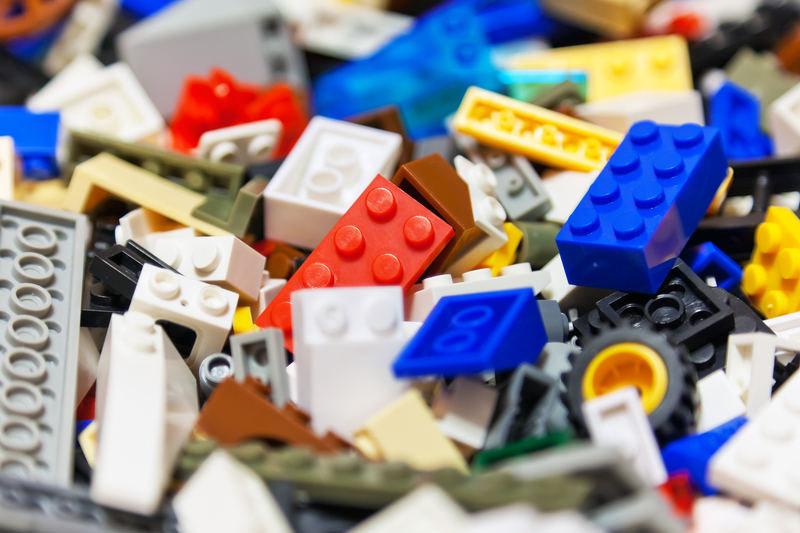Proper Ways to Sort Your Trash
Posted on 10/05/2025
Waste management is a critical aspect of maintaining a sustainable environment. Sorting your trash properly can
significantly reduce the amount of waste that ends up in landfills and can contribute to a cleaner, greener
planet. In this article, we will discuss the best practices for sorting trash, the pros and cons of sorting
waste, essential tips, key takeaways, and a conclusion to tie everything together.
Understand the Types of Waste
The first step in sorting your trash is to understand the different types of waste. Waste is generally divided
into four main categories: recyclable, organic, hazardous, and general waste. Each type has specific
characteristics and disposal methods.

Recyclable Waste
Recyclable waste includes materials that can be reprocessed and used again. Common recyclable materials include
paper, cardboard, glass, aluminum, and certain plastics. It's essential to clean and dry these items before
placing them in the recycling bin to avoid contamination.
Organic Waste
Organic waste consists of biodegradable materials, including food scraps, yard waste, and other organic matter.
This type of waste can be composted to create nutrient-rich soil for gardening and agriculture. Keeping a
separate bin for organic waste and managing a compost heap can help reduce the volume of trash in your household.
Hazardous Waste
Hazardous waste includes materials that are toxic, flammable, corrosive, or reactive. Examples include batteries,
pesticides, paints, and certain electrical items. It's crucial to dispose of hazardous waste correctly by using
designated disposal facilities and not mixing them with other types of waste.
General Waste
General waste includes non-recyclable and non-hazardous materials that cannot be composted. This type of waste
typically ends up in landfills. Examples include certain plastics, textiles, and sanitary waste. It's important
to minimize general waste through careful purchasing decisions and reusing or repurposing items where possible.
Setting Up a Home Sorting System
Creating an efficient home sorting system requires a bit of planning and organization. Here are some steps to
follow:
- Label Bins Clearly: Have separate, clearly labeled bins for each type of waste.
- Educate Household Members: Make sure everyone in your home understands the sorting system.
- Use Color Codes: Use color-coded bins to make sorting easier and more intuitive.
- Keep Bins in Accessible Places: Place bins in strategic locations, such as the kitchen, bathroom, and garage.
- Regularly Check and Empty Bins: Ensure bins are regularly checked and emptied to maintain efficiency.
Tips for Successful Trash Sorting
- Reduce waste by purchasing items with minimal packaging.
- Reuse containers, bags, and other items before disposing of them.
- Donate or sell items that are still in good condition but no longer needed.
- Stay updated on local recycling guidelines and facilities.
- Encourage neighbors and community members to adopt waste-sorting practices.
Pros and Cons of Sorting Your Trash
Like any practice, sorting your trash has its advantages and disadvantages.
Pros
- Reduces landfill waste and environmental impact.
- Promotes recycling and the conservation of resources.
- Supports the local economy through recycling industries.
- Minimizes pollution and greenhouse gas emissions.
- Encourages responsible consumption and waste management habits.
Cons
- Requires time and effort to sort waste properly.
- Can be challenging to educate and maintain consistent practices in large households or communities.
- May involve initial costs for purchasing multiple bins and composting equipment.
- Recycling guidelines can vary and might be confusing.

Takeaways
Sorting your trash is a valuable practice that benefits the environment and society. By understanding the
different types of waste and implementing a systematic sorting method, you can make a positive impact. Remember
to educate those around you and stay informed about local guidelines to ensure effective waste management.
Conclusion
Properly sorting your trash is an essential step towards sustainable living. While it may require some effort and
commitment, the long-term benefits far outweigh the challenges. By adopting thoughtful waste-sorting practices,
you contribute to a cleaner, healthier environment and encourage others to do the same. Start today, and make
waste sorting a regular part of your routine for a greener future.
Latest Posts
UK Rubbish Removal: How It Operates
Creative Ideas for Reusing Wrapping Paper










